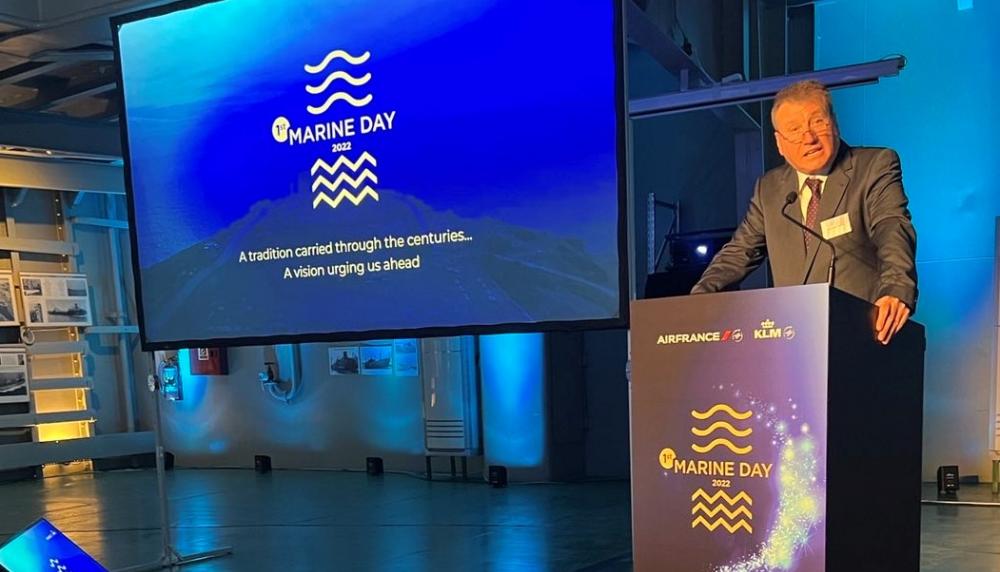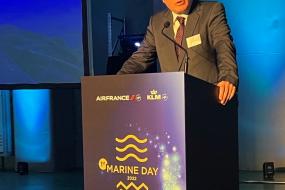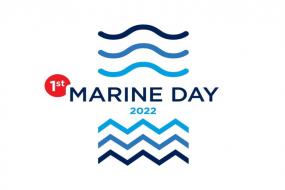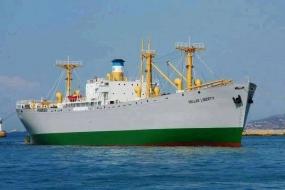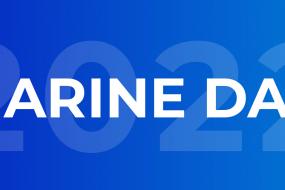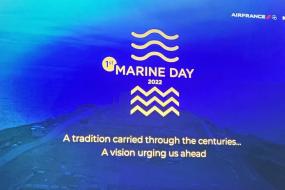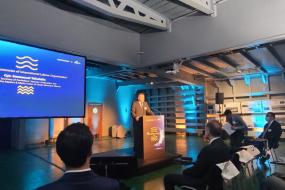Ημερίδα με σκοπό την προσέγγιση του Ναυτιλιακού κόσμου της χώρας μας, διοργάνωσαν οι αεροπορικές εταιρείες AIRFRANCE – KLM – DELTA.
Η εκδήλωση πραγματοποιήθηκε την Τετάρτη 13 Απριλίου 2022, στο πλοίο Hellas Liberty στον Πειραιά.
Στην ημερίδα παραβρέθηκε, ως προσκεκλημένος ομιλητής, ο Γενικός Γραμματέας της Πανελλήνιας Ναυτικής Ομοσπονδίας, Cpt. Μανώλης Τσικαλάκης.
Θέμα της ομιλίας του:
“Role and competencies of ILO (International Labour Organization)”
Ladies and Gentlemen,
I would like to thank you for giving me the opportunity to speak at 'Marine Day'.
My name is Emmanuel Tsikalakis and I am the General Secretary of Panhellenic Seamen’s Federation (PNO), which is the only Federation representing Greek seafarers.
PNO, according to its Constitution, is committed to safeguard and promote to Greek Seafarers’ rights, in order to secure their financial and moral interests and the promotion of their skills, according to the International Conventions and most importantly Maritime Labour Convention (MLC).
PNO is affiliated to the General Confederation of Greek Workers (GSEE) and the International Transport Workers’ Federation (ITF) and throughout its long history of more than 100 years, PNO has been active in IMO and ILO Bodies and of course in close contact with the Greek Ministry of Shipping.
Let me start by giving you some solid facts for seafarers:
1. Seafarers Run the Global Economy. Almost 90% of the global trade is delivered by sea, which needs skilled seafarers to operate. It is the workforce which counts more than 1.6 million workers around the world, working hard to keep the supply lines moving and alive. It is because of these skilled and brave people called seafarers that businesses around the world continue to prosper. Imagine what would happen to the world if seafarers didn’t work.
2. Seafarers Sacrifice their Social and Family Life. They stay away from their loved ones and family while they carry out their duties at sea.
3. Seafarers Fight Elements of Nature. Taking cargo from one port to other often involves facing ugly storms and waves. Sea isn’t as friendly as it seems from ashore and in spite of all the latest technological progress, a Seafarer at sea is at the mercy of nature.
4. Seafarers Face Serious Health Issues. Due to the nature of their work, they may suffer from specific illnesses and injuries and face issues, such as homesickness, loneliness, fatigue and at most of the times, without having a doctor or medical facility to go immediately.
5. Seafarers pass through dangerous waters. Maritime piracy and armed robbery exist for as long as maritime trade exists, putting in danger the life of Seafarers, including violence towards crew, who many times are taken hostage and even kidnapped.
Even in good times, Seafarers are the Heroes of the Global Economy.
Since the outbreak of Covid-19, like healthcare professionals, Seafarers, are at the frontline of this pandemic. Their role has become even more important to all, however, their life even more difficult. Hundreds of thousands of Seafarers, with the only purpose to keep global trade moving, remain trapped at sea for months beyond their contracts, unable to be repatriated, or have medical treatment and of course unable to see their families.
Seafarers remained at the heart of global supply chain. Even when air traffic had stopped in many places during the Covid-19, goods continued to move by sea.
Under those circumstances, Seafarers had to get the minimum of respect they deserved. Their sacrifice and contribution had to be recognized. This is the reason why IMO, ILO, in line with United Nations, urged governments and stakeholders to designate Seafarers as Key Workers, to implement relevant protocols for safe crew changes, give priority to vaccination of seafarers and ensure access to immediate medical attention.
While COVID-19 and its different variants has not yet reached to an end, seafarers have to deal also with the Ukrainian conflict. International Transport Workers’ Federation has recently set Special guidelines as regards to high-risk areas and repatriation and we truly hope and wish all this to end soon.
MLC
At this point, let me share with you an important milestone in the history of the ILO and maritime industry in general, which was the adoption of the Maritime Labour Convention (MLC) in 2006. The initial concept was the entire package of ILO maritime labour standards (30 Conventions) to be consolidated into one Convention. Governments, Employers and Workers’ groups, including PNO of course, and the ILO Office, collaborated for five years, in order to achieve this outcome. Since its initial adoption, 98 countries have ratified the MLC until today.
ILO
Having said the above about the importance of MLC, that stresses out without saying the importance of ILO for the whole spectrum of workers internationally, regardless of age, gender, race etc.
The ILO, having today representatives of 187 member States, is based on tripartism. A system that gives governments, employers and worker representatives a seat at the table, where they can debate and develop labour standards together. This “Social Dialogue” can mean negotiation, consultation or simply exchange of views, with or without government involvement. Social dialogue is a flexible tool that enables the parties to manage changes in order to achieve economic and social goals.
Brief history of the ILO
During the times of growing industrialization the flow of workers from agriculture to industry was increasing rapidly. Working conditions were often poor and industrial accidents were common. Trade unions and workers' associations started to organize across borders.
Since its early days, the ILO, according to its funding mission, is devoted to promoting social justice and internationally recognized human and labour rights by improving working conditions, building a system of international standards, expressed in the form of Conventions, Recommendations and Codes of Practice.
The ILO, has adopted more than 180 ILO Conventions and 190 Recommendations, covering all aspects of work in general, but most important, basic human rights such as preventing Forced Labour, Child Labour, Discrimination, Promotion of Collective Bargaining etc.
Some great points in its long history is the Committee of Experts, set up in 1926, to supervise the application of ILO standards. In 1951 the Committee on Freedom of Association was introduced, to defend the right of workers to form and join organizations of their choice in a free and open society. In 1969, on its 50th anniversary, the ILO was awarded the Nobel Peace Prize and in 1998 adopted the Declaration on Fundamental Principles and Rights at Work.
Thank you for your attention.
